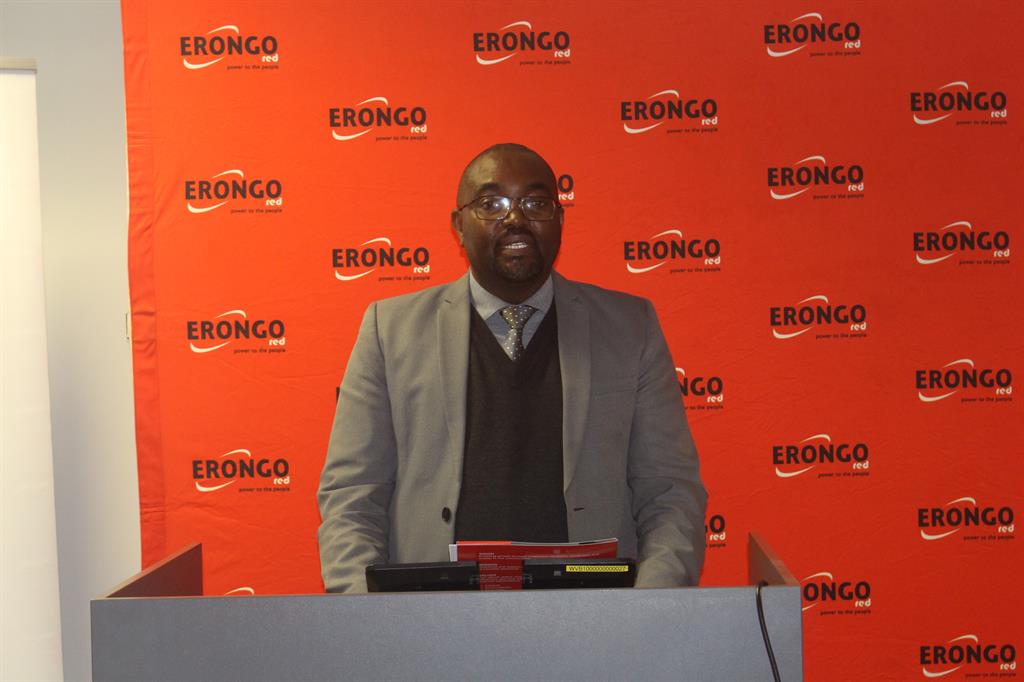Erongo RED adjusts electricity tarrifs
The adjustment was a result of ECB’s average increase on NamPower’s tariff from N$1.65 to N$1.69 per kilowatt for the 2021/22 financial year.
The Electricity Control Board (ECB) has approved a weighted average of 1.7% tariff adjustment by Erongo RED effective July 2021 to June 2022.
The adjustment according to Erongo RED Chief Executive Officer (CEO) Fessor Mbango was a result of ECB’s average increase on NamPower’s tariff from N$1.65 to N$1.69 per kilowatt for the 2021/22 financial year.
“It is worth noting that for the past two years, this will be the first time that Erongo RED is increasing their tariffs. As a company, we are still committed to providing subsidised tariffs especially now that Covid-19 has affected our vulnerable members of the community,” Mbango noted.
He added that despite the increase, pensioners will continue to enjoy other benefits such as not paying basic charges up to 40-ampere circuit breakers; subsidised tariffs (special tariffs) up to 40-ampere circuit breakers and installation of prepaid electricity boxes free of charge.
Erongo RED has also resolved to continue with lifeline tariffs for customers on the 20-ampere circuit breakers, who will be charged on the inclining block tariff structure.
“The inclining block tariffs means that the electricity price is divided into three blocks. The first block of electricity is at the lowest price for the first 100 units. As the customer purchases more electricity during the month, the electricity bought will eventually fall in block two for the next 400 units, which is a bit more expensive. This process repeats automatically as the customer purchases further electricity to move into the last block, which is above 500 units,” the CEO explained.
Erongo RED has pledged its support to vulnerable community members, especially customers who cannot afford to pay the actual retail tariffs who are advised to move to the lifeline tariff provided they meet the qualification criteria set out in the Social Tariff policy.
“For this financial year, we also took into account the current economic situation and the impact of electricity cost on our commercial and industrial customers, the impact of Covid-19 on the industries, businesses, farmers and our residential consumers,” Mbango noted. - Nampa
The adjustment according to Erongo RED Chief Executive Officer (CEO) Fessor Mbango was a result of ECB’s average increase on NamPower’s tariff from N$1.65 to N$1.69 per kilowatt for the 2021/22 financial year.
“It is worth noting that for the past two years, this will be the first time that Erongo RED is increasing their tariffs. As a company, we are still committed to providing subsidised tariffs especially now that Covid-19 has affected our vulnerable members of the community,” Mbango noted.
He added that despite the increase, pensioners will continue to enjoy other benefits such as not paying basic charges up to 40-ampere circuit breakers; subsidised tariffs (special tariffs) up to 40-ampere circuit breakers and installation of prepaid electricity boxes free of charge.
Erongo RED has also resolved to continue with lifeline tariffs for customers on the 20-ampere circuit breakers, who will be charged on the inclining block tariff structure.
“The inclining block tariffs means that the electricity price is divided into three blocks. The first block of electricity is at the lowest price for the first 100 units. As the customer purchases more electricity during the month, the electricity bought will eventually fall in block two for the next 400 units, which is a bit more expensive. This process repeats automatically as the customer purchases further electricity to move into the last block, which is above 500 units,” the CEO explained.
Erongo RED has pledged its support to vulnerable community members, especially customers who cannot afford to pay the actual retail tariffs who are advised to move to the lifeline tariff provided they meet the qualification criteria set out in the Social Tariff policy.
“For this financial year, we also took into account the current economic situation and the impact of electricity cost on our commercial and industrial customers, the impact of Covid-19 on the industries, businesses, farmers and our residential consumers,” Mbango noted. - Nampa





Kommentar
Allgemeine Zeitung
Zu diesem Artikel wurden keine Kommentare hinterlassen